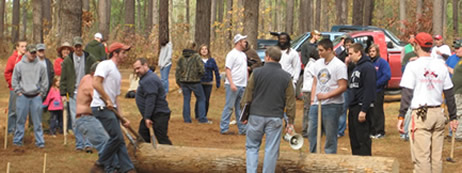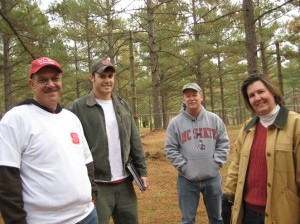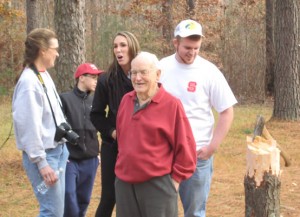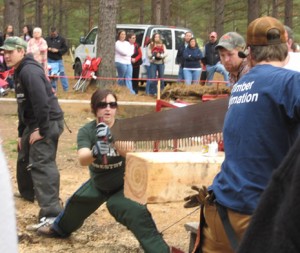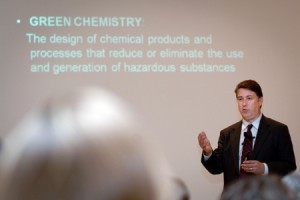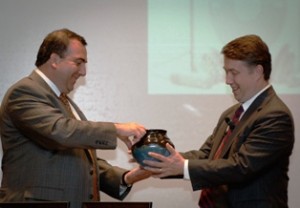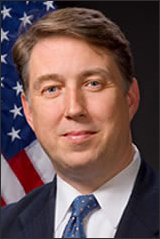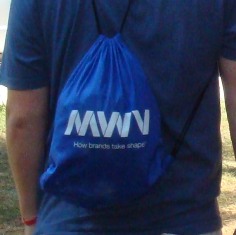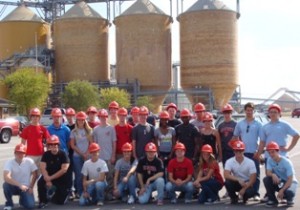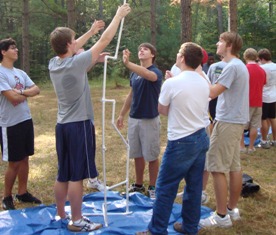Forestry & Environmental Resources Seminar
Margaret D. Lowman, Ph.D.
Director, Nature Research Center, North Carolina Museum of Natural Sciences, and Research Professor, NC State PAMS
The College of Natural Resources at NC State University is pleased to host this special Forestry & Environmental Resources Seminar in Jordan Hall Room 1218 from 3:30 – 4:30pm, December 6, 2010.
Dr.Meg Lowman 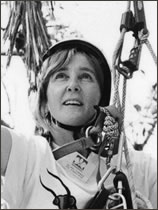 pioneered the science of canopy ecology. For 30 years, she has designed hot-air balloons and walkways for treetop exploration to solve mysteries in the world’s forests, with special expertise on the links between insect pests and ecosystem health. Meg is affectionately called the mother of canopy research as one of the first scientists to explore this “eighth continent.” She relentlessly works to “map” the canopy for biodiversity and to champion forest conservation around the world. Her international network and passion for science have led her into leadership roles where she seeks best practices to solve environmental challenges.
pioneered the science of canopy ecology. For 30 years, she has designed hot-air balloons and walkways for treetop exploration to solve mysteries in the world’s forests, with special expertise on the links between insect pests and ecosystem health. Meg is affectionately called the mother of canopy research as one of the first scientists to explore this “eighth continent.” She relentlessly works to “map” the canopy for biodiversity and to champion forest conservation around the world. Her international network and passion for science have led her into leadership roles where she seeks best practices to solve environmental challenges.
As Director of the Nature Research Center, Meg oversees the new wing’s research agenda, which includes supervising senior research staff; developing, directing, implementing and fundraising for all research programs of the NRC; and assisting with the integration of existing Museum programs within Center operations. She also provides leadership for the North Carolina University system partnership as well as partnerships with varied research organizations in the State, Federal Government and private sector. Finally, she serves as primary advocate for the Center, promoting its mission to groups ranging from elementary classes to corporate executives to international conference attendees.
In addition to her role as Director of the Nature Research Center, Meg is Research Professor of Natural Sciences in the College of Physical and Mathematical Sciences at NC State University, where she will focus on initiatives involving science communication to the public. She currently serves as Vice President of the Ecological Society of America; Treasurer of the Association for Tropical Biology and Conservation; Executive Director of TREE Foundation; Board of Directors for The Explorers Club and Earthwatch; and Climate Change Adviser to Alex Sink, CFO of the Florida cabinet. Previously, Meg has served as Director of Environmental Initiatives and Professor of Biology and Environmental Studies at New College of Florida, CEO of The Marie Selby Botanical Gardens, and Professor of Biology and Environmental Studies at Williams College.
Meg’s academic training included Williams College (BA, Biology); Aberdeen University (MSc, Ecology); Sydney University (PhD, Botany); and Tuck School of Business (Executive Management). Her numerous awards include the Margaret Douglas Medal for Excellence in Conservation Education from the Garden Club of America, Girls Inc. Visionary Award, Mendel Medal for achievements in science and spirit, Lowell Thomas Medal for discoveries in the canopy, and election as a Kilby Laureate and an Aldo Leopold Leadership Fellow.
Meg has authored more than 100 peer-reviewed scientific publications, and her first book, “Life in the Treetops,” received a cover review in the New York Times Sunday Book Review. Working tirelessly on sustainability initiatives at home and abroad, she recently received the Achievements in Canopy Ecology award from her peers at the 5th international canopy conference in Bangalore, India.


